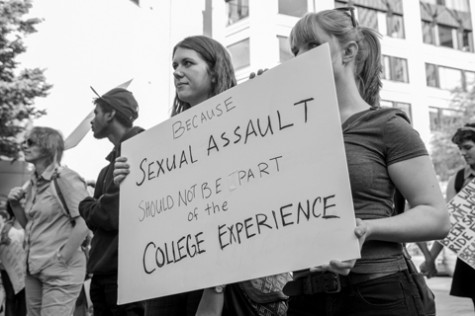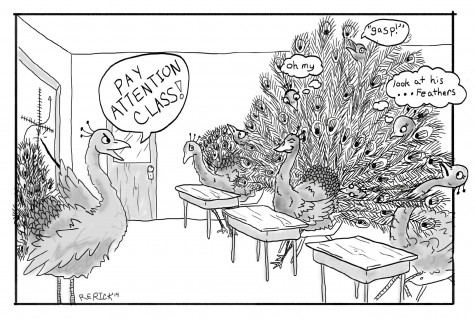A third of college men are OK with rape
Across cultures, rape is often still largely ignored, as people attempt to sweep issues of rape and assault under the rug or make excuses to attempt to maintain some sort of safety in their world. When presented with information or occurrences of rape or assault, they are often shocked or even dismissed, interrogating the victim and merely slapping the perpetrator on the wrist.
Very recently, a local study put on by Sarah R. Edwards, Kathryn A. Bradshaw and Verlin B. Hinsz which surveyed male college students on two constructs of “hostility toward women” and “callous sexual attitudes”.
The main aim of the study was to distinguish between the different types of rapists and their inclination of aggressive behavior (a trait attributed to the male gender) without necessarily attributing the word “rape”. Although there are some who have discrepancies with diction, accuracy and reliability of the study, the most important issue — arguably — would be how this study plays in the role of the current state of our country’s rape culture.
Gender roles established, decades ago are still upheld today by many people varying from having pink or blue balloons at a baby shower upon learning the sex of the baby to media and advertisements producing and selling goods and ideas for specific genders or sexes. There have even been studies of how people treat babies depending on sex, for example talking more sweetly to girls.
Meanwhile boys will grow up hearing, “boys don’t cry” or “you throw like a girl.” Both of these are microsexist comments that are instilled in our young male-identified children that promote the idea that men are better than women.
In that male role, men are to be tough, not outright showing emotion, even aggressive. “Man up” could mean any of these things to any given man or boy, which could result poorly in some cases. With aggression, which might not always be punching or fighting, is fueled by some of these microsexist, gender roled comments and ideas. Taking what one wants because they are a man, they are better, they are stronger than women just by the mere fact that they are man.
Now, it can be safely assumed that not many men would call themselves a rapist, however, according to the study, approximately one-third of the young men surveyed (more 90 percent being Caucasion, identifying as heterosuxal and having previous sexual experiences) would force sex — rape — upon a woman; making a woman be a participant (though not necessarily active) in a sexual event that she does not want to do does not constitute as rape if the word is not labeled to said event is seen as “OK” in the eyes of these young men.
Rape is an act of violent dominance over a victim. Dominance is a trait that society attributes and implements to the male gender. As the authors mention in the study’s introduction, “such sentiments contribute to a culture that continues to put at least partial responsibility for the sexual assault on the victim and normalizes sexual aggression as part of the male gender role,” society needs to make a change of how to apply traits to a person and their role in society depending on their identified gender. Alcohol will condemn a victim, but excuse the offender.
These active appearances of microsexism and misogyny against women and other victims (though not a part of this survey) were not only created in our society but continues to be enabled by forcing people into outdated gender roles and excusing bad behavior over a lifetime — “boys will be boys” — that could very well promote violence, especially against women.
Instead of feeling shocked by the results of this survey (which is not a wrong emotion), realize that the young men are our neighbors, friends, peers and co-workers. It is our responsibility, en masse, to promote education and awareness about sexual assault. I was elated to discover that after the survey was conducted and completed, the young men were audience to an educational presentation of rape and abuse information as well as resources for victims. The denial of rape culture only promotes offenders and dismisses victims. Acknowledging the issue, increasing education and allocating proper time and effort to protect victims and persecutes the offenders as well as not enabling the negative attributes of gender (often semi-sexist, might I add) will assist in promoting a safer society.
Steph Gartner is a staff writer for The Dakota Student. She can be reached at stephanie.gartner@my.und.edu.










